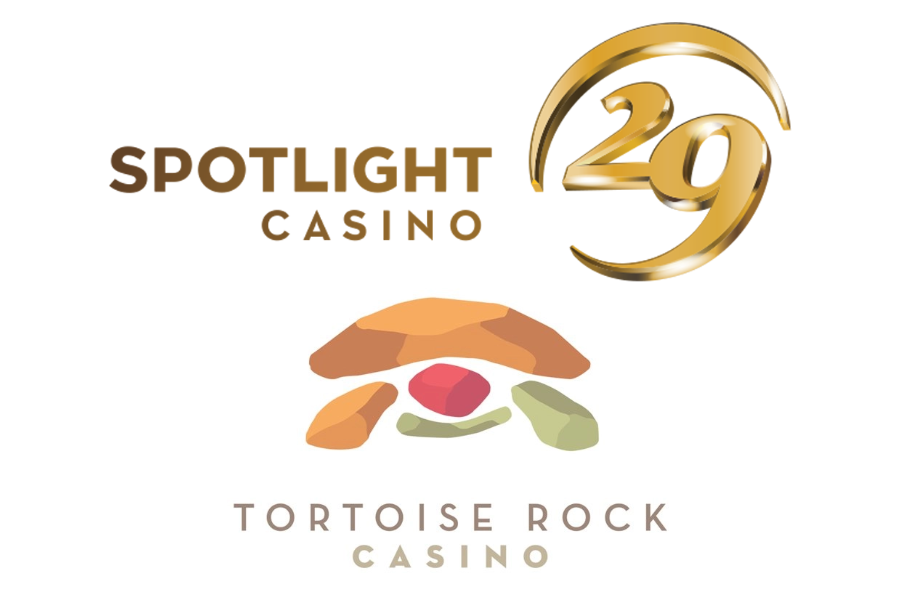29 Palms
 ">
">
QCI Saves Time and Resources
By Buddy Frank
“QCI brings access to all the data information that we try to pull; before QCI, it was taking hours of the team’s time to compile the information we needed to make decisions,” says Tribal Chairman Darrell Mike of the Twenty-Nine Palms Band of Mission Indians. He’s talking about their use of the new Quick Custom Intelligence (QCI) program.
The tribe has two casinos in the competitive Southern California market: Spotlight 29 and Tortoise Rock. Vice President of Planning and Analytics, Dennis Amos, said, “Tribal Chairman Darrell Mike had the foresight for us to implement the QCI platform which has been incredibly helpful to our operations.” Mike added, “the services provided by QCI, with Dennis’ oversight, has been instrumental in our casino’s growth. As I understand it, QCI takes our information, puts it into records, and then analyzes it. It takes all those steps out of the manual analytics process, and each unique tool in QCI brings that vital information to us. Here’s what’s happening. Here’s how you’re doing. Here are some things to look at. It takes you down the road without having our staff spend hours of analytical time to get to where we need to be. It’s a huge time saver.”
Today’s slot and player tracking applications provide mountains of valuable information. So, it’s not a lack of information that makes life difficult for operators today, it is understanding what that data is saying and organizing it into actionable insights. That’s another big plus that Amos sees with QCI, “I think it’s much more intuitive to use when you open up the program. All the basic things you need to start getting a good look at your business are right there in front of you. You can see how Coin-In is trending, how our Wins are, what slot machines are doing good, which vendors are doing well, and you can see all that information in a quick glance.”
While the program does simplify tasks, it also does sophisticated queries. “It’s very easy to drill down further into. It allows us to see what games we might want to put some more of on the floor. So, you can click on those games, see who’s playing them, what zones they’re in, where they are on your floor, what occupancy they have. So, it really makes life easier where in the past, we would just build a report and have a huge pivot table in Excel that would just provide us the information without the analysis. This really takes all that work and puts the important information in front of you.”
Good data is critical to surviving in competitive markets. There are few properties as competitive as Spotlight 29. It is officially located in Coachella, CA, but it is also, literally, across the street from Fantasy Springs Resort Casino in Indio, CA. There are also 10 other casinos within a 50-mile radius including Morongo, Soboba, Augustine and Aqua Caliente.
Accordingly, effective marketing campaigns and promotions are critical. And the speed of information delivered by QCI is a big plus “Historically, database marketing is just a slow change environment. You have to produce and mail a piece to get it into the customers’ hands. They have to come in and respond to it. And by the time you make a change, that can change again three months down the road,” says Amos, “So being able to get that information as quickly as possible really helps us move faster to understand what our customers are telling us.”
Another major factor in a competitive market is good Host programs. “We can monitor their activities so that we can understand what goes on day-to-day and make sure that they’re contacting the customers who think they need outreach on a weekly basis.” Such oversight may seem onerous, but it can really boost effectiveness. “The Host can see we’ve put their QCI quarterly goals in the system so they can see what we’re seeing,” Amos says, “We don’t have to reach out to them and say, hey, you’re 10% below your trending. They can look at the data and say, I’m not hitting my projected goal. Maybe I need to apply myself differently? It’s not “surprise reporting.” They know exactly how they are doing, and it allows each team member to take corrective action on their own without needing us to step in. It’s perfect.”
Fantasy Springs and Spotlight 29 Casino were among the pioneers of California Native American casino operators but are only separated by Interstate 10. The Twenty-Nine Palms Band of Mission Indians and Cabazon Band of Cahuilla Indians once shared a single Riverside County reservation as Mission Indians, but the government split them into two separate areas in 1976.
In 1987, the door was opened for Native Americas to operate casinos nationwide when the bingo hall at Fantasy Springs won the historic California vs. Cabazon case before the U.S. Supreme Court. That led to Congress passing Indian Gaming Regulatory Act (IGRA) in 1988. Under that act, both Spotlight 29 and Fantasy Springs opened full casinos in 1995.
Spotlight 29 Casino and Tortoise Rock Casino features 1,700 slot machines and over 30 table games. They have a 2,200-seat showroom, three restaurants and several bars.